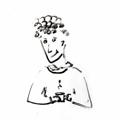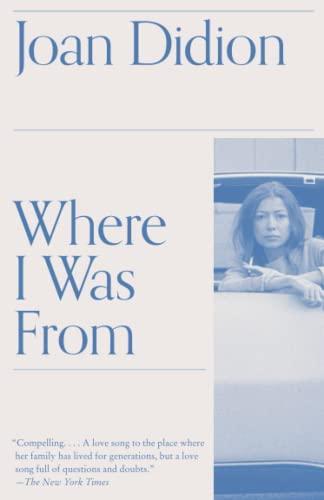ralentina reviewed Where I Was From by Joan Didion
California un-dream
4 stars
To be a conservative, in the literal sense of the word, is to oppose change. Often, change has already happened, and that opposition than takes the shape of nostalgia for the past, a sense that we are living in an age of decay and decadence. From this viewpoint, everyone is probably a bit conservative, at least in some respect. Didion was a full-blown conservative, and even when she abandoned the Republican party it was because it had changed, becoming tacky and populist under Nixon's lead (shortly before picking up this book, I listed to and enjoyed this Know Your Enemy podcast, which gives some helpful background).
In this book, she tackles her conservatism head-on, in a very sophisticated and intelligent way. What exactly is she nostalgic for? The book has four parts, which roughly coincide with four main themes. First, the mythology surrounding the settlement of the American West, the pioneers crossing the continent and fighting to turn the desert and swamps into fertile agricultural land (a story that completely disregard both the heavy-handed support provided by the federal government, and the extent to which lands were hoarded by speculators who enriched themselves, while most of the work was carried out by temporary laborers and migrants. Here, Didion only hints at the other elephant in the room, namely the genocide and forced displacement of native Americans. Second, the role of larger aerial companies (Douglas) in the development of California, an industry propped up by contracts with the federal government, and which collapsed after the end of the Cold War, producing resentment, unemployment, and suburban communities with no purpose. As the tech industry replaced airplane factories, a class of mostly white, white-collar Californians were pushed out by Silicon Valley types. Third, California's alarming number of prisons and asylums, the first just a new opportunity for the few to speculate, the latter a way, historically, to put away people who did not live up to the pioneer standards. Finally, Didion's own family, childhood memories and coming to question the idea that the Didions were 'real Californians', who had seen the place during its Golden age, and still possessed a set of qualities irremediably lost through so-called progress.
These themes are interwoven, explored through hundreds of anecdotes and stories, some similar to mini-reportages, other pieces of family folklore, others autobiographic fragments, others still the work of amateur historians. If Didion didn't write so well, it would certainly be boring. Instead, there is coherence, nuance and the courage to call bullshit on her own beliefs.

